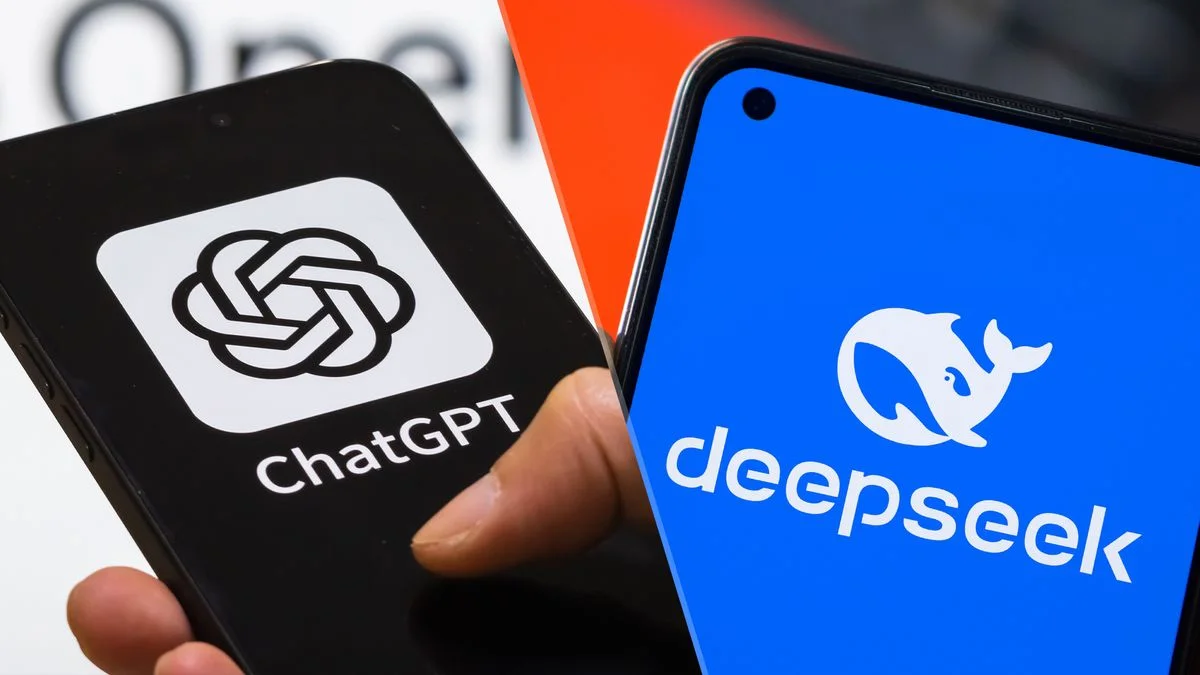Synthetic intelligence is reshaping how we eat and engage with knowledge. From chatbots answering our inquiries to AI-driven fact-checking equipment, those techniques are anticipated to offer dependable, correct, and impartial insights. However what occurs when an AI type fails to fulfill those expectancies?
Deepseek, a Chinese language AI chatbot, has just lately come underneath intense scrutiny after a Information Guard document claimed it used to be erroneous 83% of the time when responding to news-related queries. Consistent with the findings, 30% of its responses contained false knowledge, whilst 53% supplied no solutions in any respect. With one of these top failure fee, this raises a essential query—can Deepseek be relied on as a data supply, or is that this document a part of a bigger narrative in opposition to Chinese language AI trends?
1. What Did the Information Guard Record Disclose?


Synthetic intelligence is incessantly praised for its talent to procedure huge quantities of data temporarily, however what occurs when it fails at its core objective—handing over correct knowledge? That’s exactly the worry raised in a contemporary Information Guard document, which took a more in-depth take a look at DeepSeek’s efficiency. The consequences had been surprising: Deepseek failed to offer right kind knowledge 83% of the time when responding to news-related queries. However what does this in reality imply, and the way used to be this conclusion reached?
Breaking Down the Investigation
Information Guard, an organization focusing on comparing the credibility of on-line assets, put Deepseek to the take a look at with 57 moderately crafted activates designed to evaluate its talent to care for incorrect information. Those activates weren’t random; they incorporated well known falsehoods, advanced political subjects, and factual information queries requiring exact responses.
Right here’s the place issues took a troubling flip:
- 30% of DeepSeek’s responses contained false knowledge. Somewhat than debunking incorrect information, it both repeated or bolstered false claims.
- 53% of the time, it failed to offer a solution in any respect. This incorporated imprecise, incomplete, or solely lacking responses, making it unreliable for customers looking for correct information.
- Best 17% of its responses had been factually right kind or effectively debunked incorrect information, a efficiency considerably weaker than its Western opposite numbers like Chatgpt or Google Bard.
Those numbers paint a stark image—Deepseek now not best struggles with accuracy but in addition lacks the essential safeguards to clear out falsehoods.
Used to be Deepseek Set As much as Fail?
Critics of the document argue that Deepseek used to be unfairly examined with activates designed to shuttle it up. Then again, Information Guard insists that its technique is same old throughout all AI opinions. If different AI fashions carried out higher underneath the similar prerequisites, is that this merely a case of DeepSeek’s technical shortcomings, or does it expose deeper flaws in the way it used to be constructed?
Additionally, the find out about raises crucial query: Will have to an AI chatbot that fails over 80% of the time be relied on with essential knowledge? For customers depending on AI for fact-checking, information updates, or ancient context, the consequences are regarding.
Why Does This Subject?
In an technology the place AI performs an expanding function in shaping public opinion, accuracy is non-negotiable. Whether or not DeepSeek’s failure stems from deficient coaching information, vulnerable fact-checking functions, or intentional bias, the end result is similar—it delivers unreliable knowledge.
If AI chatbots like Deepseek proceed to combat with incorrect information, the wider query stays: Can synthetic intelligence ever be a in point of fact impartial and faithful supply of data?
As we dive deeper into this controversy, we’ll discover the imaginable causes for DeepSeek’s inaccuracies, whether or not there’s a political time table at play, and the way it compares to main AI competition. Stick with us as we discover the reality at the back of the numbers.
2. Breaking Down the 83% Failure Charge


Numbers by myself don’t all the time inform the overall tale, however in DeepSeek’s case, the statistics expose a troubling development. Consistent with the Information Guard document, Deepseek failed to offer correct or helpful responses in 83% of circumstances—however what precisely does that imply? Let’s take a more in-depth take a look at how this failure fee breaks down and what it says in regards to the AI’s reliability.
1. 30% of Responses Contained False Knowledge
One of the regarding findings used to be that almost one-third of DeepSeek’s solutions had been outright wrong. As an alternative of figuring out and correcting incorrect information, the chatbot incessantly repeated and even bolstered false claims.
For example, when requested about debunked conspiracy theories, Deepseek incessantly didn’t problem them, as a substitute presenting deceptive statements as information. This raises severe questions:
- Does Deepseek lack an efficient fact-checking mechanism?
- Is its coaching information unsuitable or old-fashioned?
- May just there be an underlying bias influencing its responses?
Without reference to the motive, AI chatbots are anticipated to be informational gatekeepers, now not incorrect information amplifiers. When a chatbot delivers falsehoods relatively than information, it now not best misleads customers but in addition undermines public accept as true with in AI-powered equipment.
2. 53% of Responses Have been Non-Solutions or Incomplete
Much more troubling, greater than part of DeepSeek’s responses weren’t simply wrong—they had been totally unhelpful. In those circumstances, the chatbot both didn’t generate a reaction in any respect or supplied imprecise, fragmented knowledge that left customers with extra questions than solutions.
Why does this occur? The in all probability explanations come with:
- Restricted wisdom retrieval: Deepseek won’t have get admission to to complete, up-to-date information assets.
- Strict content material filters: The chatbot would possibly steer clear of answering delicate or advanced questions to stop controversy, resulting in overly wary or incomplete replies.
- Vulnerable contextual working out: In contrast to complex AI fashions that refine responses the use of context, Deepseek would possibly combat to procedure nuanced queries.
This loss of reliability is a significant pink flag. If customers can’t depend on Deepseek for transparent, correct, and whole knowledge, what worth does it in reality supply?
3. Best 17% of Responses Have been Correct or Debunked Falsehoods
In all probability probably the most telling statistic is that Deepseek best effectively debunked false claims or supplied correct knowledge 17% of the time. That implies for each 10 questions requested, fewer than 2 responses had been factually right kind.
To position this into standpoint, main AI fashions like Chatgpt and Google Bard have considerably upper luck charges when fact-checking and handing over dependable responses. When put next, DeepSeek’s efficiency means that it:
- Lacks robust verification processes to differentiate reality from fiction.
- Struggles with incorrect information detection, making it susceptible to deceptive activates.
- Fails to align with person expectancies, particularly when used for analysis or fact-based inquiries.
If Deepseek can’t reliably debunk falsehoods or supply helpful insights, it’s honest to query whether or not it will have to be relied on as a data supply in any respect.
Why Does This Subject?
Within the age of AI-driven content material, incorrect information is extra unhealthy than ever. Other folks flip to AI chatbots for immediate get admission to to wisdom, assuming that those techniques are programmed to be factual and impartial. However DeepSeek’s failure to fulfill even elementary accuracy requirements means that it might be doing extra hurt than just right.
Whether or not because of technical barriers, inadequate information verification, or planned oversight, an 83% failure fee is solely unacceptable for an AI type designed to care for information and factual queries.
As we discover the deeper problems surrounding Deepseek, we’ll read about whether or not its inaccuracies are purely technical—or if there’s a larger time table at play. May just this be a subject matter of deficient AI coaching, or is Deepseek deliberately shaping the narrative? Let’s dive into the imaginable explanations.
3. Why Does Deepseek Battle with Accuracy?


When an AI chatbot fails to offer correct solutions greater than 80% of the time, the herbal query is: Why? Is it a flaw within the era, a limitation of its information assets, or one thing extra intentional?
DeepSeek’s struggles with accuracy can also be traced again to a number of key elements, together with old-fashioned coaching information, vulnerable fact-checking functions, and cultural biases. Let’s destroy them down.
1. Coaching Information Cutoff: Caught within the Previous
One primary limitation of Deepseek is its mounted wisdom base. In contrast to AI fashions that use real-time internet surfing to ensure information, DeepSeek’s coaching information is best present as much as October 2023.
This implies it can’t as it should be solution questions on:
- Contemporary international occasions (political shifts, clinical breakthroughs, primary information tales).
- Evolving traits in era, industry, or leisure.
- Up to date clinical or clinical findings that experience modified since its ultimate coaching replace.
If you happen to ask Deepseek about one thing that came about in past due 2023 or 2024, it both supplies old-fashioned knowledge—or no reaction in any respect. This critically limits its usefulness as a real-time knowledge supply.
2. Vulnerable Truth-Checking Mechanisms
Every other primary flaw in DeepSeek’s design is its lack of ability to ensure knowledge in real-time. In contrast to main AI fashions akin to Chatgpt and Google Bard, which cross-reference a couple of fact-checking assets, Deepseek seems to lack robust safeguards in opposition to incorrect information.
This weak spot ends up in two primary problems:
- Repeating false claims: As an alternative of debunking incorrect information, Deepseek incessantly reinforces it, making it unreliable for customers looking for factual knowledge.
- Failure to right kind old-fashioned wisdom: Even if introduced with recognized falsehoods, the chatbot struggles to give you the right kind knowledge.
A powerful AI type will have to now not best come across incorrect information however actively counter it—one thing Deepseek fails to do persistently.
3. Language and Cultural Biases
Deepseek used to be essentially designed for Chinese language customers, and this center of attention might give a contribution to language and cultural limitations that affect its accuracy in different contexts.
Doable barriers come with:
- Weaker efficiency in non-Chinese language languages: The chatbot might combat with nuanced queries in English or different languages, resulting in misunderstandings or misinterpretations.
- Censored or limited knowledge: If Deepseek is skilled on a dataset curated underneath strict laws, positive subjects is also left out or altered to align with particular narratives.
- Contextual misunderstandings: AI fashions should interpret cultural nuances to offer correct responses. If Deepseek isn’t well-trained on various international views, it’ll fail to acknowledge key main points in person queries.
Those elements may just provide an explanation for why DeepSeek’s responses incessantly appear incomplete, deceptive, or biased when dealing with subjects past its core center of attention.
Can Deepseek Toughen?
In spite of its shortcomings, DeepSeek has the prospective to enhance—if its builders enforce key updates akin to:
- Reside fact-checking to ensure responses in opposition to dependable assets.
- Common information updates to make sure its wisdom stays present.
- More potent incorrect information filters to stop false claims from being repeated.
- Advanced multilingual functions for broader international use.
Then again, whether or not those enhancements will probably be made—or whether or not Deep Search is deliberately restricted in its functions—stays a bigger debate.
Within the subsequent segment, we’ll read about one of the arguable claims about Deep Search: Is it merely an underperforming AI, or is it intentionally designed to push a selected time table?
4. Is Deepseek a Mouthpiece for the Chinese language Executive?


Synthetic intelligence is incessantly seen as a impartial software, designed to offer function, data-driven insights. However what occurs when an AI machine subtly displays the political and ideological stance of the entity that created it? That is the query surrounding DeepSeek, as professionals analyze whether or not its responses align too carefully with Chinese language authorities narratives.
Does DeepSeek’s bias stem from unsuitable AI coaching, or is it a planned effort to regulate the glide of data? Let’s discover.
1. Patterns of Political Alignment in Responses
A number of analysts have famous that Deepseek incessantly echoes legitimate Chinese language authorities positions when discussing delicate subjects, even if the ones positions are disputed globally. Some spaces the place this development seems come with:
- Geopolitical problems – When requested about Taiwan, Tibet, or Hong Kong, Deep Search incessantly gifts China’s legitimate stance with out acknowledging opposing views.
- Human rights issues – Subjects like Xinjiang, censorship, or press freedom generally tend to obtain state-aligned responses, averting essential viewpoints.
- World conflicts – In world disputes, DeepSeek leans towards narratives that align with China’s diplomatic messaging.
Whilst AI fashions inevitably replicate some bias in keeping with their coaching information, the consistency of DeepSeek’s alignment with Chinese language state narratives has ended in hypothesis about its true objective.
2. Is DeepSeek’s Dataset Selectively Curated?
AI chatbots be told from large datasets, however the high quality and variety of that information decide how balanced their responses are. If a type is skilled on state-approved assets, it’ll combat to give choice viewpoints.
In DeepSeek’s case, some key issues come with:
- Limited get admission to to overseas information assets – If the chatbot can’t get admission to Western media, unbiased journalism, or choice viewpoints, it naturally produces responses restricted to a selected worldview.
- Heavy reliance on state-controlled publications – If its dataset is curated essentially from government-approved media, its outputs is also inherently biased.
- Filtering of arguable subjects – Some AI techniques are programmed to steer clear of politically delicate discussions, which might provide an explanation for why Deep Search incessantly refuses to respond to positive questions.
Those elements recommend that DeepSeek’s biases aren’t unintended however relatively a mirrored image of the managed virtual ecosystem it used to be skilled in.
6. Evaluating Deepseek to Western Competition


When in comparison to Western AI chatbots like Open AI’s Chatgpt and Google’s Bard, DeepSeek’s efficiency falls considerably quick. The typical failure fee for chatbots in Information Guard’s analysis used to be 62%, with DeepSeek’s 83% failure fee striking it close to the ground of the listing.
To grasp whether or not DeepSeek’s bias is ordinary, let’s examine it to different primary AI fashions:
| AI Style | Method to Political Content material | Get entry to to Various Information Resources | Stage of Executive Affect |
|---|---|---|---|
| Chatgpt (Open AI) | Makes an attempt neutrality however displays Western viewpoints | Educated on various assets, together with international media | Minimum authorities affect, however matter to moderation insurance policies |
| Google Bard | Makes use of real-time internet surfing for fact-checking | Has get admission to to a variety of views | Influenced by way of content material restrictions in some areas |
| DeepSeek | Aligns with Chinese language state narratives | Educated on curated datasets with restricted overseas assets | Top probability of presidency affect |
Whilst all AI fashions have some degree of bias, DeepSeek’s restricted dataset and alignment with state messaging stand out.
7. Conclusion: Reality or Propaganda?
The Information Guard document raises legitimate issues about DeepSeek’s accuracy and reliability, but it surely additionally invitations questions in regards to the broader context by which those findings are introduced. Whilst DeepSeek’s technical shortcomings are plain, the geopolitical tensions between China and the West recommend that the narrative is also influenced by way of better agendas.
In the long run, customers should stay vigilant and examine knowledge from a couple of assets, irrespective of the AI machine they’re the use of. The Deep Search controversy serves as a reminder of the demanding situations and obligations that include the fast development of AI era.
Bored with 9-5 Grind? This Program May just Be Turning Level For Your Monetary FREEDOM.


This AI aspect hustle is specifically curated for part-time hustlers and full-time marketers – you actually want PINTEREST + Canva + ChatGPT to make an additional $5K to $10K per month with 4-6 hours of weekly paintings. It’s probably the most robust machine that’s running presently. This program comes with 3-months of one:1 Reinforce so there may be virtually 0.034% possibilities of failure! START YOUR JOURNEY NOW!















